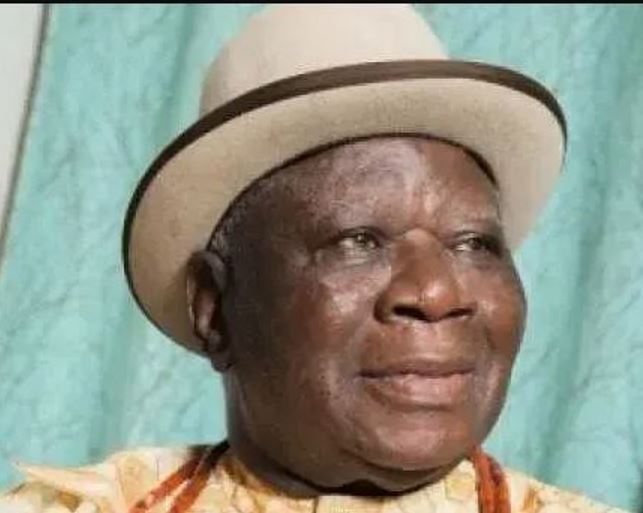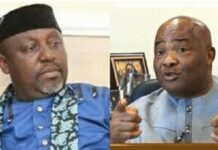Osoba described the parliamentary system of government as the “most economical,” remarking that “the centre is too loaded”.
By Jeffrey Agbo
Ijaw leader, Edwin Clark, and former governor of Ogun State, Olusegun Osoba, have thrown their weight behind the proposed amendment to the 1999 Constitution to switch Nigeria from the presidential system of governance to the parliamentary system.
In February, 60 members of the House of Representatives, led by the Minority Leader, Kingsley Chinda, presented constitution alterations bills for first reading on the floor of the House, seeking to return the country to the parliamentary system.
Chinda led some lawmakers to Clark’s Abuja residence on Tuesday.
Chinda said the lawmakers were bent on making governance count, noting that the presidential system was too expensive to run.
He said, “The present style of presidential system that we are running in Nigeria is too cumbersome for our country, for our background, for our experience and cannot, in any way, be repaired as we stand today.
“A governor and president can run the state or the country for four years without talking to Nigerians. He has committed no offence against our laws. That is why you will hear the likes of Garba Shehu, (Ajuri) Ngelale, talking to Nigerians instead of the number one citizen of the country.
READ ALSO:
Sanwo-Olu, Dapo Abiodun, Ike Nwachukwu, Osoba, others extol Jakande at Memorial Lecture
“During COVID-19, all of us were here, other countries were having briefings weekly by their presidents but our president did not do it. We must have a system where public officeholders, including ourselves that you have elected, will be more accountable to you, the people. A system where public officeholders will be on ground, not administering by proxy.
“Our leader, we came with one agenda and as representatives elected into the House of Representatives of Nigeria to make laws for the good governance of this country, to make law for the peace and progress of this country – Nigeria.
“We will not shy away from the fact that our country is not where we all expected it to be today. We are not here to lay blames, our job is to look for solutions.”
In his response, Clark applauded the lawmakers’ initiative, noting that “the restructuring of Nigeria can no longer wait, otherwise there will be no Nigeria.”
Speaking after a closed-door meeting with the lawmakers at his Abuja residence, Osoba described the parliamentary system of government as the “most economical,” remarking that “the centre is too loaded”.
“How can somebody in Abuja stay here and want to control the primary education in Kanuri, in Sokoto, in Bayelsa, in Ogun State? The culture is different.
“Take the issue of security for instance. Security is very local. When people kidnap, if you make security local, people who know their terrain will easily know where these terrorists are hiding. We have to devolve power,” Osoba said.














